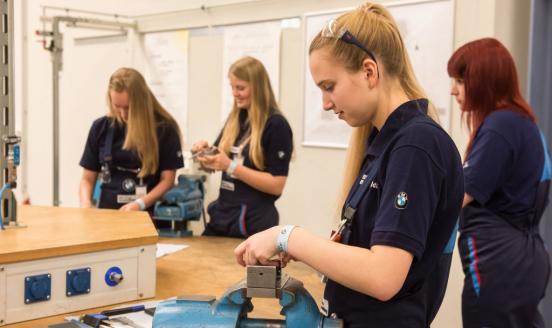Skills or a degree? The rise of skills-based hiring for AI and green jobs
We explore whether employers have started focusing on individual skills rather than on formal qualifications in their recruiting.

Executive summary
For emerging professions, such as jobs in the field of artificial intelligence (AI) or sustainability (green), labour supply does not meet industry demand. In this scenario of labour shortages, our work aims to understand whether employers have started focusing on individual skills rather than on formal qualifications in their recruiting. By analysing a large time series dataset of around one million online job vacancies between 2019 and 2022 from the United Kingdom, and drawing on diverse literature on technological change and labour market signalling, we provide evidence that employers have started so-called ‘skill-based hiring’ for AI and green roles, as more flexible hiring practices allow them to increase the available talent pool. In our observation period the demand for AI roles grew twice as much as average labour demand. At the same time, the mention of university education for AI roles declined by 23 percent, while AI roles advertise five times as many skills as job postings on average. Our regression analysis also shows that university degrees no longer show an educational premium for AI roles, while for green positions the educational premium persists. In contrast, AI skills have a wage premium of 16 percent, similar to having a PhD (17 percent). Our work recommends making use of alternative skill building formats such as apprenticeships, on-the-job training, MOOCs (massive open online courses), vocational education and training, micro-certificates and online bootcamps to use human capital to its full potential and to tackle talent shortages.
This was produced within the project "Future of Work and Inclusive Growth in Europe" with the financial support of the Mastercard Center for Inclusive Growth.



